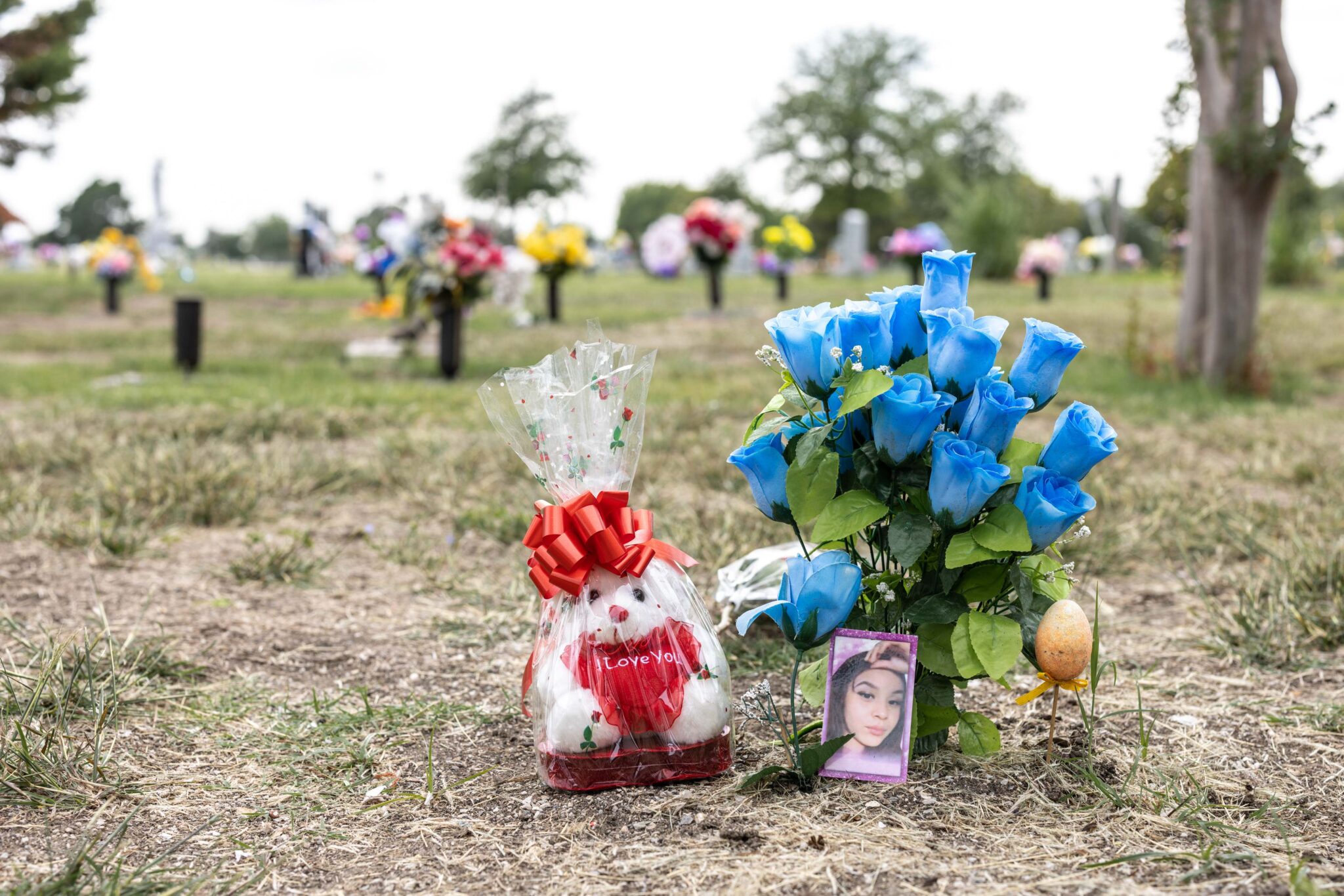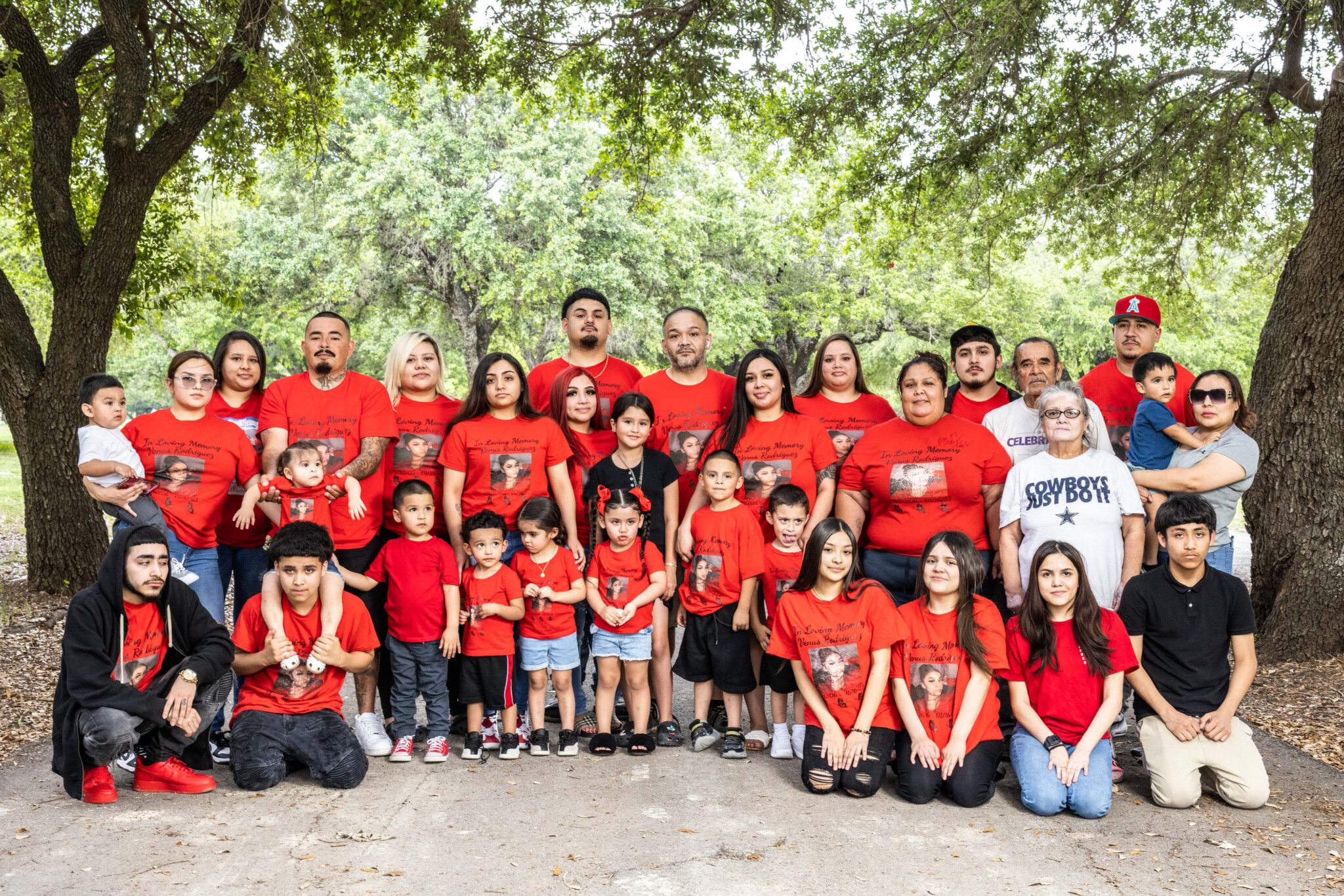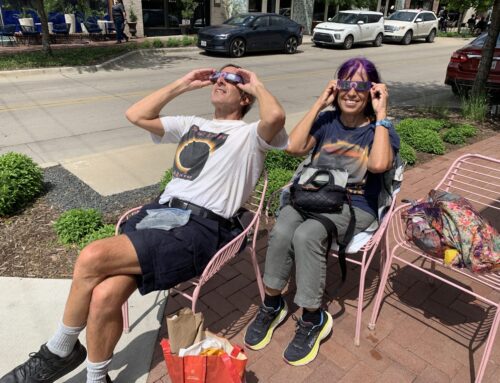Two days before her 16th birthday, Venus Rodriguez told her family she was going to take a shower before dinner.
She locked the bathroom door, turned on the shower and climbed out the bathroom window, slipping away into the early evening.
Venus’ family say they reported her missing to police the moment they realized she was gone.
Over the next four months, Venus’ family members found themselves frustrated as they attempted to navigate the Dallas police runaway system.
When Dallas police did locate Venus, it was too late.
Her bullet-riddled body had been left in a creek near the Wynnewood North neighborhood, only three miles from her home.
A status offense
Venus’ uncle and legal guardian, Victor Arredondo, says efforts by Dallas police to locate Venus did not match his family’s desperation to have her back home.
“They looked more into her case after they found her body than they did when she actually ran away,” Arredondo says.
As homicide detectives began looking into Venus’ death, they discovered she had been living with the 22-year-old man who has been charged with her murder. Neighbors told investigators they witnessed the man, Arturo Flores, chasing Venus down the street and striking her.
But if Venus had ever feared for her life or wanted to call for help, she would have known that calling the police would have led to consequences for herself, too.
Texas is one of only nine states that criminalizes minors running away.
The state considers running away a status offense — meaning it is only considered illegal when committed by someone 16 years old or younger.
And Venus had run away once before, in 2020.
Venus was only a middle school student when she went to a home in Cedar Hill to stay with a friend who Arredondo says had a negative influence on Venus.
That was the family’s first time dealing with a runaway investigation. Family members had location-tracking access to Venus’ phone and knew where she was, and alerted police to her location.
But Arredondo was upset to learn that without a warrant, police were unable to enter the home to look for Venus unless they were let in by the homeowner.
“They told us they couldn’t do much about it, but we knew she was there,” Arredondo says.
After Venus was found, she spent six months at the Letot Center — a Dallas juvenile facility that provides residential intake for youths who are runaways and works with family members for an amicable home reunion — where she received therapy and counseling.
“She was doing good in there. She’d gotten back on track doing school, and we were told she would help out with the other kids,” Arredondo says. “She got to the level where she could come home on weekends for a few hours, and we would have to drop her back off by 7 p.m.”
Arredondo attended family counseling with Venus at the center. When she was allowed to return home, he enrolled her in classes at Molina High School. In addition to school, Venus attended counseling sessions and parole check-ins. Her runaway attempt was now on her record.
At that point, Arredondo says Venus’ personality had returned to “how it was before.”
“She knew what the consequences would be if she ran away again,” he says.
It made Venus’ second disappearance all the more devastating.
A scarlet letter
Jason Vallejo is the founder and executive director of Elevate North Texas, an emergency shelter for 18- to 24-year-olds who are in crisis or experiencing homelessness.
Vallejo says that in 2022, 35% of Elevate residents have a minor infraction on their criminal record — such as running away or being found with a small amount of marijuana — that had become a “scarlet letter” when they attempted to rejoin society.
“It kind of starts that cycle, right? Then moving forward, they can’t find stable housing or even employment because they have this minor thing that’s on their record now,” Vallejo says. “It makes it harder for them to get those resources that they need in order to become self-sufficient and grow up to be contributing adults.”
Vallejo says teens who run away from home are often fleeing dangerous situations. Familial abuse, or a family kicking out a teen for circumstances such as pregnancy or identifying as a member of the LGBT community, are the most common reasons minors give for leaving home.
But Arredondo says that wasn’t the case for Venus.
Venus’ home was full of love and laughter, her family says. She spent her afternoons helping her younger siblings with their homework and often bought them treats. Venus’ aunt, Priscilla Hernandez, describes the family as being “very close knit.”
And Arredondo says it was important to him and his mother, Minerva, that their home had boundaries for the kids.
“Here, you had to be home by 9 p.m. for school the next day,” Arredondo says. “My mom wouldn’t let (Venus) wear makeup. She was a kid.”
But while Venus’ initial return home had been a return to normal for the family, she soon began texting Arturo Flores.
Arredondo isn’t sure how Venus and Flores met, but he was immediately concerned when he learned that Flores was six years older than Venus.
“She met the wrong person,” Arredondo says.
But at 15 years old, Venus was infatuated with Flores. She likely thought it was her first brush with love.
The second time Venus ran away, she went to Flores’ home. Family members say they began hearing from friends and community members who would see Venus out with Flores, or walking in his neighborhood.
Venus’ family say they emphasized to Dallas police detectives that Venus was only a minor, and they believed she was being taken advantage of by an older man.
Minerva says she gave detectives Flores’ name and phone number. She expected police to use that information to follow up on the rumors that Venus was living with Flores, but she was frustrated when they never did.
“The cops would say, ‘We can’t go to every house you tell us you think she is at,’” Arredondo says. “It was frustrating. We would get no answers other than, ‘We’re looking into it.’”
The Dallas Police Department told the Advocate that detectives were never provided a direct address of where the family believed Venus to be.
“We do not get into specifics regarding investigative tactics, but we can say detectives conduct interviews, follow leads they are given and also work with local shelters, hospitals and juvenile facilities to work to locate missing persons,” the statement says.
On Jan. 16, Venus’ grandmother Minerva received a call from detectives asking if the family had heard from Venus.
Venus’ older sister, Anne Marie, had received text messages from Venus sporadically throughout the four months she was gone. But the texts stopped Jan. 6.
“I asked how she was and said that I missed her,” Anne Marie says. “I thought maybe she didn’t want to talk to me because she was scared I would tell our grandma.”
The next evening, two detectives knocked on the family’s door.
“They just asked, ‘Does Venus Rodriguez live here?’” Arredondo says. “I said I was her guardian, and they asked to come in and talk. I thought they probably had her in custody or something. They asked the kids to go to the other room and sat us down, and they started asking us questions like when did she run away, and when did we last see her?”
Police continued questioning Arredondo and his mother for the next 30 minutes, he says, before delivering the tragic news.
Venus’ body had been found in a creek. She had been shot multiple times and was “clearly murdered,” a police report says.
Officers told the family they were able to identify Venus through her finger prints, which were in the system from her booking after running away in 2020.
A staggering caseload
Arredondo says his family has spent the first half of 2023 juggling their grief with their anger that Venus’ case could have been handled differently by Dallas police.
He says that between her two runaway cases, there are a string of police failures and a lack of accountability for the adults who enabled his niece to run away in the first place.
In both cases, the homeowners of the homes Venus stayed at have not been charged with harboring a minor. Harboring a minor is a Class A misdemeanor in Texas, punishable by up to a year in prison and a maximum $4,000 fine.
Arredondo says he would also like to see laws change so that police are better able to investigate leads on children who run away and enter homes where minors are believed to be staying. And he would like to see the Dallas Police Department allocate more resources to cases like Venus’ and families like his.
According to the department, there are “more than a dozen” detectives assigned to the Youth Operations department and certain detectives within that unit handle missing persons and runaway cases.
The department declined to clarify how many detectives specifically handle runaway cases, saying, “We don’t give exact staffing numbers for safety/security reasons.”
But there are a staggering number of cases to handle.
As of May 2, 592 runaway minors had been reported to Dallas police. That averages out to 4.8 new cases a day.
Police had a four-month period between Venus leaving home and her body being found, but Arredondo says his family has received few answers about how police conducted their investigation during that time.
A public records request filed by the Advocate to attempt to see that investigation was denied due to a minor being involved.
Arturo Flores has been charged with the murder of Venus Rodriguez. He was indicted by a grand jury April 13 and is being held in the Dallas County Jail on a $500,000 bond.
Flores is also being held on two $1,000 bonds for charges of unlawfully carrying a weapon and interfering with public duties.
Arredondo says he is disappointed Flores has not been charged with statutory rape, kidnapping, harboring a minor or assault. Dallas police declined to clarify why additional charges have not been given in Flores’ case, and a request for comment from Flores’ lawyer was not answered.
For Venus’ mother, who is also named Minerva, it has been the hardest year of her life. Minerva does not live in the home Venus did, but lives nearby and is a present figure in her family’s life.
She says Venus would often come visit her and called her daily.
Venus should be in school playing her trumpet, helping her siblings with their homework and preparing for summer vacation. She should be getting a driver’s license and a summer job.
“They should’ve just done a better job of bringing her back home,” Minerva says.







